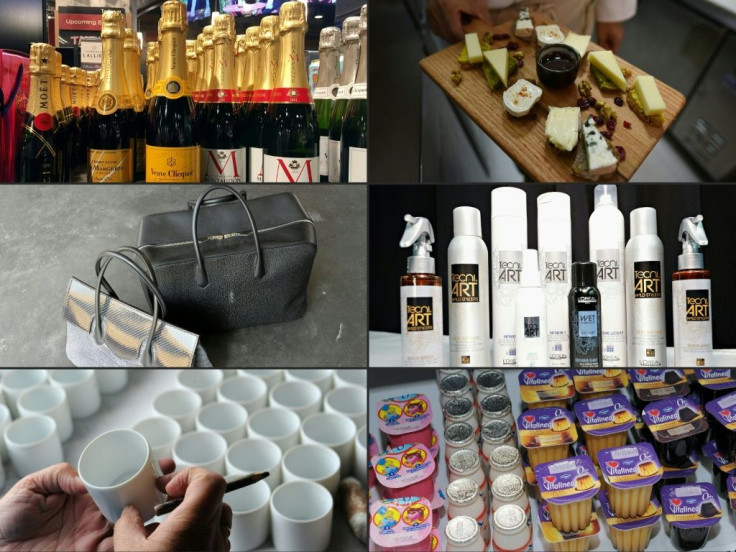US Tech Tariffs: A Bull In France's China Shop

The small universe of Americans who import France's most famous products -- porcelain from Limoges, champagne, cast-iron cookware -- gathered Tuesday in Washington and pleaded with US officials not to put tariffs on their prized merchandise.
President Donald Trump has threatened to tax $2.4 billion in such imports by as much as 100 percent, retaliating against a French tax on tech companies, which US officials say unfairly singles out Silicon Valley.
Some hope arose earlier on Tuesday, when French Finance Minister Bruno Le Maire said Paris and Washington have given themselves two weeks to strike a bargain and end the impasse.
But across the Atlantic in a Washington hearing room later in the day, dozens of corporate and industry representatives told a panel of US government experts of their fears and objections.
"American workers and consumers would suffer more from these tariffs than the French," said Joanna Rosenberg, chief marketing officer for the Staub line of cast-iron cookware from Alsace.
Standing to her right, George Kakaty, the US head of Bernardaud, the Limoges porcelain maker, warned the tariffs "would decimate long-standing American small businesses."
The array of goods President Donald Trump has targeted seems designed to wound Gallic pride: cosmetics, skin creams and soap, cheeses, leather handbags, cast iron bakeware and sparkling wines.
David Waldenberg, a wine importer, drew applause from the room when he told the panel the tariffs would "only impact small family businesses."
Retailers and wholesalers will be forced either to raise prices, which could drive consumers away, or eat the costs themselves.
This could lead to layoffs, according to William Tomaszewski of the online retailer wine.com, who said "thousands of Americans" could lose their jobs.
"Once you increase tariffs, you increase costs on companies that have low profit margins," Marianne Rowden, president of the American Association of Exporters and Importers.
Kakaty said porcelain from the French city of Limoges is "unique," with no equivalent in the United States .
"Our objective is to get the tariffs off," he told AFP. "If it does not happen, the consequences are severe, not only to our company but also to the retailers."
The tariffs could drive US consumers toward cheaper rival goods including those from China, according to Kakaty.
Those speaking publicly were each allotted five minutes. Then came the questions: what share of your revenues do French goods represent? Where is your competitors' merchandise manufactured?
Then a sudden announcement interrupted the proceedings: US federal offices were ordered to close at 1:00 pm (1800 GMT) due to approaching snow. Statements would have to be shortened, and the hearing was later extended into a second day.
For Nate Herman, a senior vice president at the American Apparel and Footwear Association, the battle over France's digital services tax is "another dispute that has nothing to do with our industry."
Months earlier, he had been in the same auditorium when the Trump administration unveiled punitive duties on European goods in a clash over subsidies to the aircraft maker Airbus.
"We shouldn't be here," he said.
© Copyright AFP 2024. All rights reserved.





















